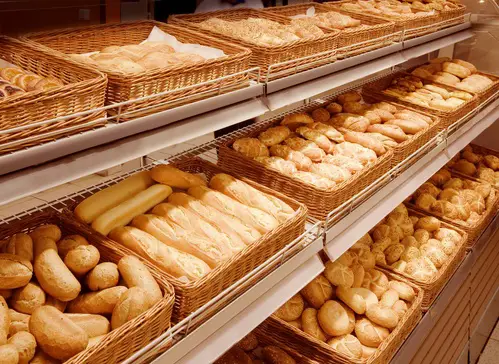The debate on whether bread makes you fat rages on even today. Nearly everyone believes that bread is not suitable for your health. But, there’s no consensus even among scientists about the degree of risk.
The worst part about it all is that bread is a staple in many communities. In many cultures, breakfasts aren’t complete without a few slices of bread.
Let’s find out the truth on the relationship between bread and weight, the risk factors, and what you can do.
Background
Perhaps we should begin by saying that dieting for weight loss is a complex topic. For example, two people could eat the same diet for a year, but only one ends up gaining weight. Similarly, two people seeking to lose weight can eat the same foods every day for a year, but one or both could fail to lose weight.
It’s also possible for two people living on the same diet to go in the opposite direction. As one loses weight, the other could gain a few pounds.
What compounds the problem is that since everyone is now talking about carbohydrates or carbs, people are less focused on the specifics and more interested in eliminating carbs. So, anything that contains carbohydrates in large quantities is a no-go.
It’s where the hate for bread comes from; since it’s a carbohydrate, it’s terrible. The same applies to sugar and sugary foods. Katherine Tucker, Ph.D. of Jean Meyer’s USDA Human Research Center on Aging, says that bread, and carbs, aren’t the enemy. It’s the type of carbs you eat.
“It’s the type of carbs that makes a difference. You need to eat more whole foods and less refined foods,” she says.
Why Processed, White Bread Makes you Fat
Pay close attention. It’s white bread, not all types of bread. Nevertheless, let’s find out how processed bread makes you fat.
1. Little nutritional value
The biggest limitation to white, processed bread is the lack of nutritional value. When a grain is refined, such as in the making of flour for white bread, the outermost and innermost layers of the grain are removed. This effectively removes all the fiber and about 25% of the protein in the flour, leaving behind starch. Eating more starch and less fiber is a direct ticket to weight gain.
2. Excess carbs are stored as fat
We’ve already mentioned the overload of starch in white bread. Where do you think this starch goes? Easy – the excess is stored as fat in your body. After a healthy meal, carbohydrates are broken into glucose that serves as an immediate source of energy. Any excess glucose is stored in the liver as glycogen or, with the help of insulin, stored as fatty acids distributed throughout the body.
3. Erratic sugar levels
Food that is low in fiber and protein, the two nutrients that help slow down digestion, is digested faster and absorbed more rapidly. This often leads to blood sugar rising quickly. This spike in blood sugar is dangerous on its own. However, it also leads to cravings, which is what’s bad for your weight. You’re more likely to binge after eating white bread.
4. It can cause mood swings
Too much white bread can also affect your mood, leading to binging. New research published in the American Journal of Clinical Nutrition shows a link between refined carbs, including white bread, and depression in post-menopausal women. Depression has been shown to cause irritability and altered appetite, which can induce binge eating.
5. White bread and Belly Fat
Finally, studies also show a connection between white bread and belly fat. The study, now available in the British Journal of Nutrition, shows that people who eat white bread at a greater risk of belly fat compared to those who eat whole-grain cereals. People who eat white bread less also lost more weight, particularly belly fat.
What Can You Do About It?
From the last point, you can tell that although white bread is bad for your health, quantities matter greatly. In any case, a single slice of bread only contains about 75 calories. Seventy-five calories wouldn’t affect you at all, even if you ate a slice every day.
So, the first step is to cut the amount of white bread you consume per day. Eat less of it and less frequently. Additionally, with the understanding that white bread is limited in other nutrients, learn to pair all your bread servings with protein and healthy fat. It reduces the risk of binging. Don’t accompany bread with another starch.
Above all, since white bread makes you fat, consider alternatives. Whole-grain bread is satisfying, heart-healthy fiber and protein as well as other nutrients. You may also want to replace bread altogether in some meals. Excellent replacements include eggs, sweet potatoes, and vegetables.












